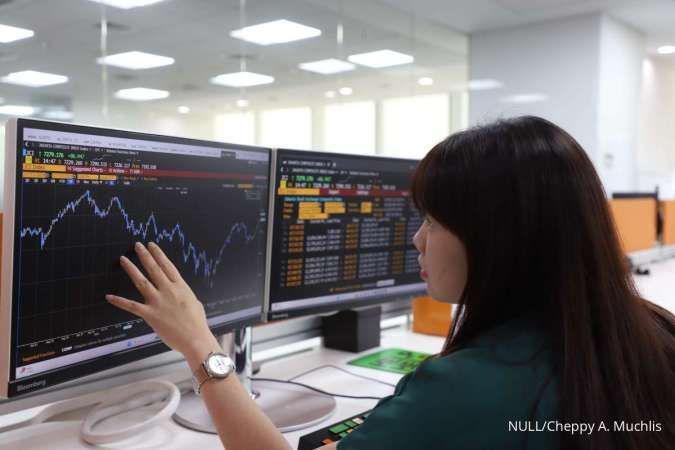JAKARTA. International analysts have revised their current account estimates for Indonesia upward in a sign that bullish investors have begun to see that improvements in the country’s external balance may not come as swiftly as expected. This may further hurt local financial assets, analysts say. Indonesia’s current-account deficit, the major concern among foreign investors, may only narrow to 3.1 percent of gross domestic product (GDP) this year, according to ING Groep NV. The Dutch-based financial group previously estimated that the deficit could fall to as low as 1.1 percent in 2014.
Morgan Stanley also revised Indonesia’s current-account deficit forecast upward to 3.2 percent of GDP this year, from 2.7 percent previously, while Citigroup changed the deficit outlook to 3.15 percent from 2.5 percent. Throughout last year Indonesia’s annual current-account deficit rose to a record high level of $29.1 billion, or 3.3 percent of GDP, according to data from Bank Indonesia (BI). For Indonesia, even with the already revised forecast, there might still be “risks of upside surprise” for both its current account and fiscal deficits this year because of the rising fuel subsidies, wrote ING Groep NV analyst Prakash Sakpal in an email. “Worries about overshoot in the twin deficit targets will be a headwind to appreciation in the local financial assets, in our view,” said Sakpal, who also revised up its rupiah’s year-end outlook to 11,600 per US dollar from 10,800 previously. BI Governor Agus Martowardojo said last week that the central bank’s monetary policy would have to remain tight if the current account deficit was to fall below a sustainable level of around 2.5 percent of GDP. A worsening deficit in the current account, the broadest measurement of international trade, could exert heavy pressure on the rupiah, analysts have warned. The situation is attributed to the widening gap between dollar supply and demand, as greenback supplies from exports are insufficient to meet dollar demands for imports. The size of Indonesia’s current account deficit would make the rupiah become “emerging Asia’s most vulnerable currency” to any regional outflows likely occurring next year due to the possible hike of interest rates in the US, predicted UK-based Capital Economics Ltd. economist Gareth Leather. This was because, Leather explained, the weakening in Indonesia’s external balance occurred at times when most economies in the region had been seeing improvement in their current accounts through bigger surpluses or smaller deficits. With a slowing economy giving BI less room to tighten monetary policy any further, hopes are now being pinned on president-elect Joko “Jokowi” Widodo, who is slated to take office on Oct. 20, to adjust the price of subsidized fuel types in order to narrow the current-account deficit.
“The problem is with high energy-related imports, which are less sensitive to interest rates,” said Sean Yokota, a strategist with Sweden-based financial group SEB AB. “We feel the current-account deficit will narrow going forward since seasonality wears off and some mineral export bans were relaxed. However, the recovery will be slow.” Analysts also said Jokowi should not repeat the mistake of President Susilo Bambang Yudhoyono, who finally raised fuel prices only in June last year after Indonesia had been “punished” by global investors who yanked their rupiah assets for fears of a tighter US monetary policy. With the US Federal Reserve likely to hike its interest rates next year, the timing and size of the subsidy reduction should be considered carefully, Bank Central Asia (BCA) chief economist David Sumual warned. “Dithering over the issue [...] can create a ‘perfect storm’ situation with synchronized pressures on inflation, rupiah and the capital account, as we saw in June-August 2013, which in turn may reduce the efficacy of subsidy reduction,” David explained in a research note. (Satria Sambijantoro)



